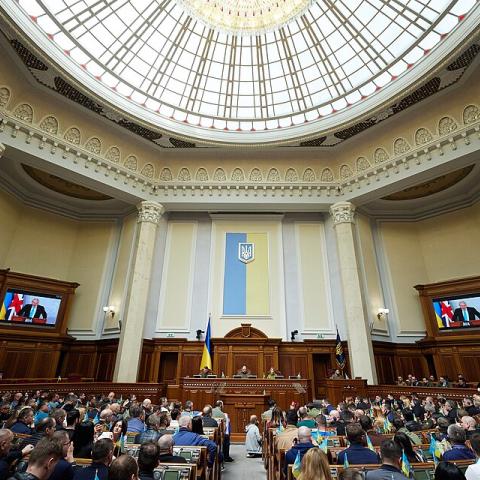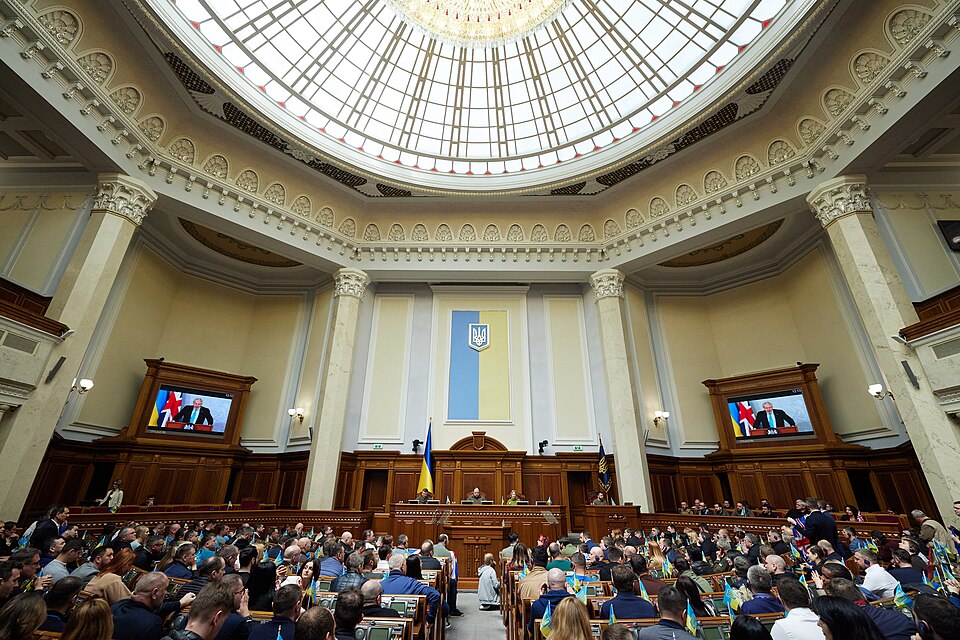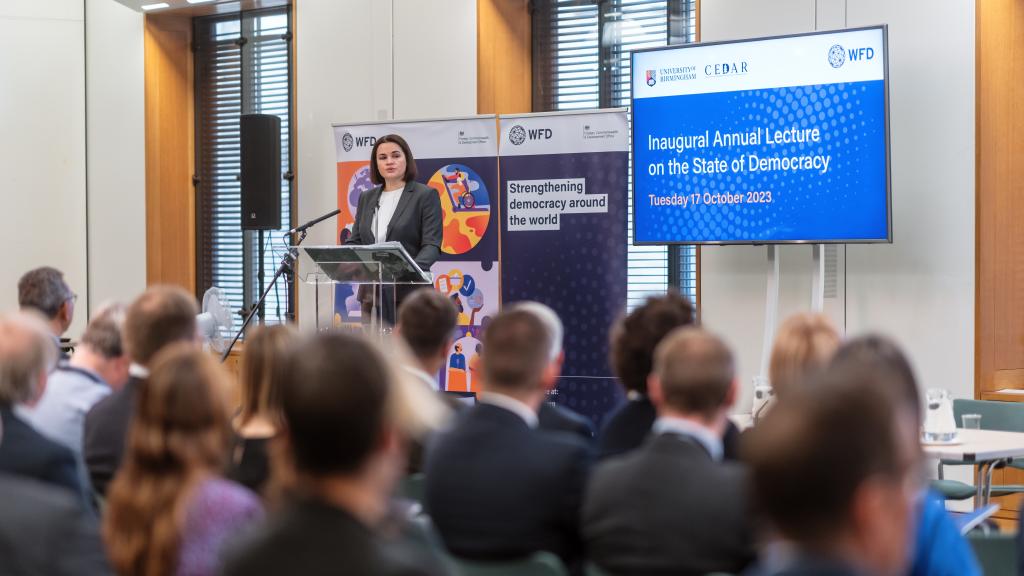Past events

This expert conference aims to shine light on political party practices that identify and nurture women candidates and support them on to positions of party leadership. Political leaders representing parties from around the world will both showcase and learn about reforms and innovations that political parties can adopt to better support women candidates. Participants will lead debates on how to identify, nurture, promote, and expand female talent within their parties, focusing on candidate recruitment, support, and selection.

The third clinic of the post-legislative scrutiny (PLS) Community of Practice will focus on drafting a committee’s report on the impact and implementation of legislation, considering different structures and formats of reports, reviewing data and opinions to guide findings about how the law works, enhancing understandability and readability of the PLS report, drafting recommendations which are SMART, and advancing the report’s recommendations at administrative and at political level.

The second WFD post-legislative scrutiny (PLS) Community of Practice Clinic will to focus on the different roles and responsibilities of Members of Parliament and parliamentary staff in preparing for, conducting and following up to PLS activities in parliament.

Online misinformation endangers democracy and the integrity of elections. WFD’s Democracy Action Partnership side-event to the Bali Civil Society and Media Forum (BCSMF) 2023, brings together experience and knowledge of experts involved in factchecking and media literacy campaigns to discuss safeguarding the democracy information ecosystem.

WFD’s Democracy Action Partnership side-event to the Bali Civil Society and Media Forum (BCSMF) 2023 focuses on the threat of violence against women in politics and elections (VAWP) and aims to facilitate the response we need in Asia and across the world.

Parliaments, partners, civil society organizations and all interested parties are warmly invited to join the official launch of the Indicators for Democratic Parliaments.
The launch event will present the purpose and content of the Indicators, as well as how they can be used to assess parliamentary capacity and performance.
The launch event will be held online. The two sessions will have the same content but will take place at different times in order to enable participants in different time zones to attend. Participants can indicate which session they wish to join in the registration form.
Session 1: Tuesday, 21 November 2023, 10:00–11:30 CET (interpretation in English, French and Arabic)
Session 2: Wednesday, 22 November 2023, 16:00–17:30 CET (interpretation in English and Spanish)

Join us for an engaging webinar that explores how post-legislative scrutiny (PLS) is being used to strengthen governance, accountability, and legislative effectiveness across the African continent.

In the wake of the Ukraine Recovery Conference 2025, Westminster Foundation for Democracy (WFD) invites you to a powerful and timely conversation grounded in the latest report: “The gendered impact of the Russian full-scale invasion on the priorities of Ukrainian MPs’’.

Join us for this important two-day event on 8–9 July 2025, online and in Chișinău, Republic of Moldova. The conference is proudly hosted by the Central Electoral Commission of Moldova in partnership with Westminster Foundation for Democracy, International IDEA, UNDP, the Council of Europe, IFES, and the International Republican Institute and other organisations.

This seminar will introduce WFD’s trauma-informed, cyclical risk assessment framework designed to help political institutions reflect on and address systemic risks that perpetuate violence against women in politics (VAWP). The event will feature a keynote, methodology presentation, and a high-level panel discussion with regional stakeholders.

